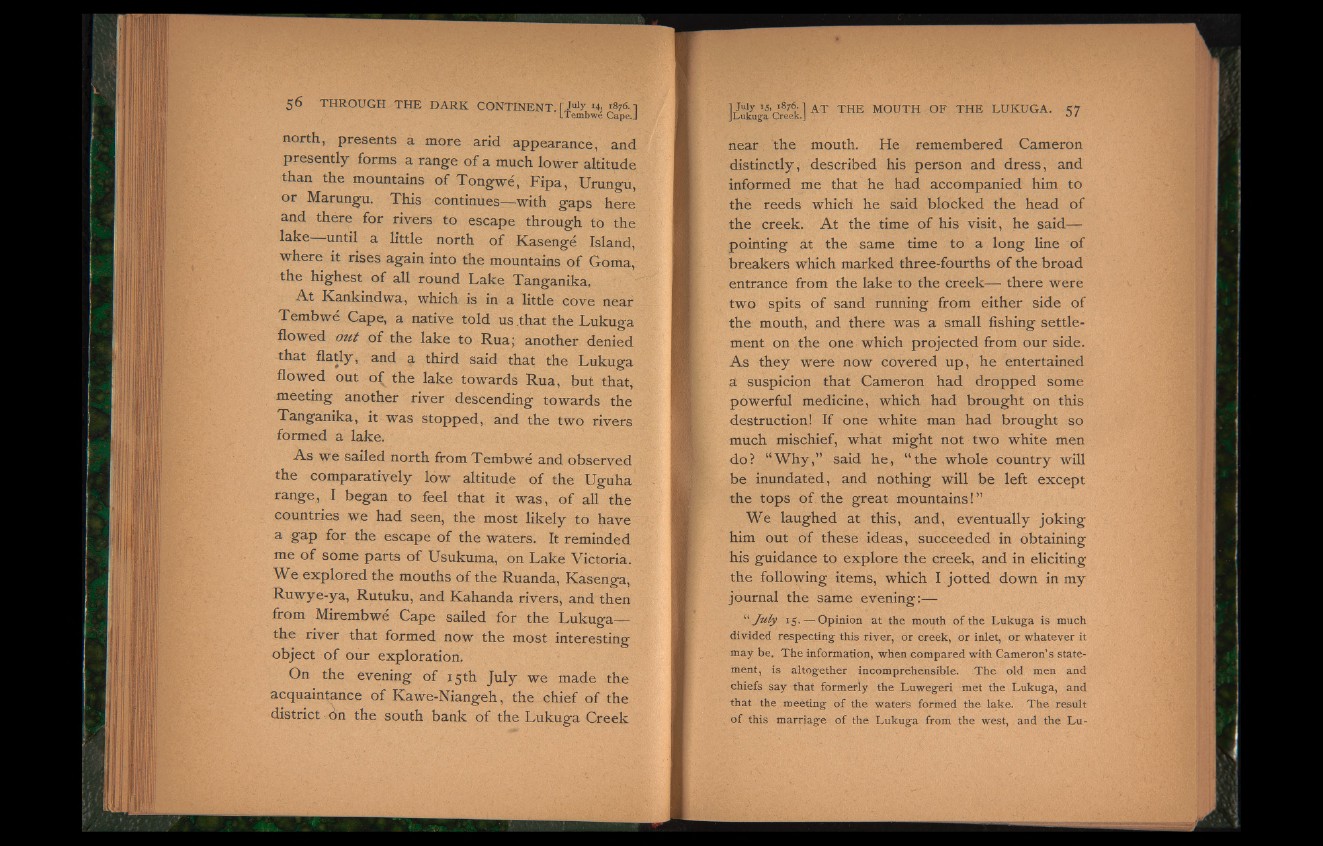
north, presents a more arid appearance, and
presently forms a range of a much lower altitude
than the mountains of Tongwe, Fipa, Urungu,
or Marungu. This continues— with gaps here
and there for rivers to escape through to the
lake until a little north of Kasenge Island,
where it rises again into the mountains of Goma,
the highest of all round Lake Tanganika,
At Kankindwa, which is in a little cove near
Tembwe Cape, a native told us that the Lukuga
flowed out of the lake to Rua; another denied
that flatly, and a third said that the Lukuga
flowed out of the lake towards Rua, but that,
meeting another river descending towards the
Tanganika, it was stopped, and the two rivers
formed a lake.
As we sailed north from Tembwe and observed
the comparatively low altitude of the Uguha
range, I began to feel that it was, of all the
countries we had seen, the most likely to have
a gap for the escape of the waters. It reminded
me of some parts of Usukuma, on Lake Victoria.
We explored the mouths of the Ruanda, Kasenga,
Ruwye-ya, Rutuku, and Kahanda rivers, and then
from Mirembwe Cape sailed for the Lukuga—
the river that formed now the most interesting
object of our exploration.
On the evening of 15th July we made the
acquaintance of Kawe-Niangeh, the chief of the
district <m the south bank of the Lukuga Creek
near the mouth. He remembered Cameron
distinctly, described his person and dress, and
informed me that he had accompanied him to
the reeds which he said blocked the head of
the creek. At the time of his visit, he said—
pointing at the same time to a long line of
breakers which marked three-fourths of the broad
entrance from the lake to the creek— there were
two spits of sand running from either side of
the mouth, and there was a small fishing settlement
on the one which projected from our side.
As they were now covered up, he entertained
a suspicion that Cameron had dropped some
powerful medicine, which had brought on this
destruction! If one white man had brought so
much mischief, what might not two white men
do? “Why,” said he, “ the whole country will
be inundated, and nothing will be left except
the tops of the great mountains! ”
We laughed at this, and, eventually joking
him out of these ideas, succeeded in obtaining
his guidance to explore the creek, and in eliciting
the following items, which I jotted down in my
journal the same evening:—
“ July 15. — Opinion at the mouth of the Lukuga is much
divided respecting this river, or creek, or inlet, or whatever it
may be. The information, when compared with Cameron's statement,
is altogether incomprehensible. The old men and
chiefs say that formerly the Luwegeri met the Lukuga, and
that the meeting of the waters formed the lake. The result
of this marriage of the Lukuga from the west, and the Lu